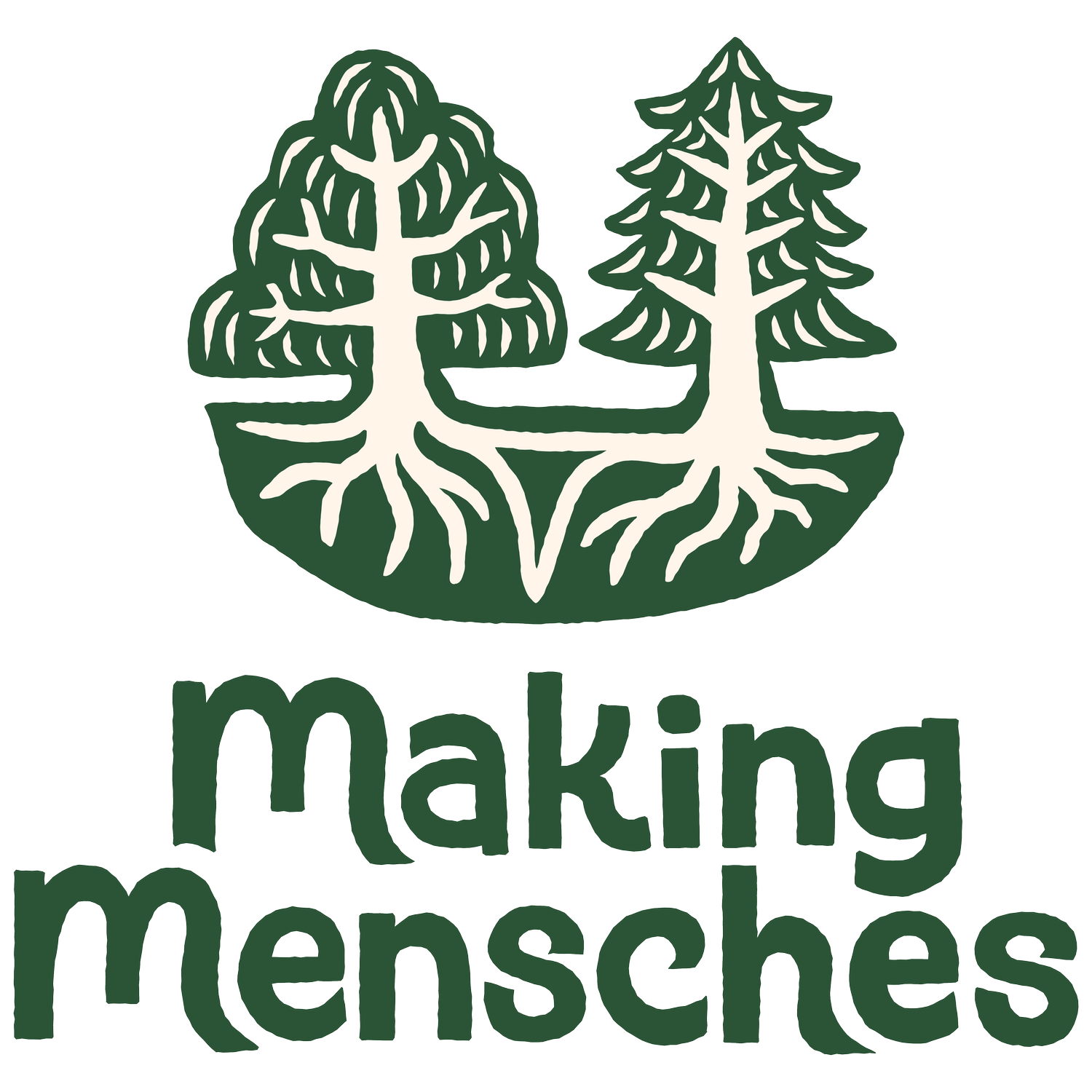Shabbat/Ritual Space Norms / FAQs
*Our ritual spaces are queer normative, explicitly anti-zionist, interfaith friendly, and anti-racist.
-
How often are Making Mensches’ Shabbats?
We try to host shabbats monthly, either in person or virtually. Our in-person events are typically hybrid.
-
What is Shabbat?
Shabbat is a weekly observance that emphasizes the importance of REST and COMMUNITY. The biblical context follows the creation story: G-d spent 6 days creating the world and on the 7th, G-d rested. It begins every Friday at sundown and ends 24 hours later with a Havdalah service. Shabbat is a weekly reminder that the world goes on without our help - and that we need each other to continue fighting for a better world.
-
What do I need to bring to a Shabbat?
Yourself, any friends you want, and if it’s in person, a contribution to the potluck if you can manage that! Potluck is not kosher. It is most helpful to bring an actual dish, but snacks, challah, dessert, drinks (alcoholic and non-alcoholic) are welcome.
-
Who organizes these events?
Making Mensches co-founders, Elana (they/them) and Jessie (she/her). More information about our organization and us as individuals can be found on the “About” tab on our website.
-
What denomination is Making Mensches?
Both founders were raised in reform Judaism. Currently, Making Mensches doesn’t adhere to one specific denomination of Judaism and incorporates elements from many branches of Judaism. Much of Making Mensches’ spiritual offerings are grounded in nature-based Jewish ideas and incorporate Kabbalistic teachings. All prayer spaces are egalitarian and gender inclusive.
-
What does “anti-oppressive” mean?
Ashkenormativity, anti-convert sentiment, racism, ableism, homophobia, transphobia, sexism, and any other forms of discrimination are not welcome in our spaces. Full stop. As Shel Maala’s standards so aptly put, “We are all fallible humans who have internalized oppressive ideologies, but in this space we do our best to engage in ways that counteract that, not reinforce it.” If you experience harm or discomfort in this space, we ask you to please bring it to us in the moment or afterwards if you are comfortable so we can ensure it goes addressed. This will include the immediate removal of anyone who caused harm and potentially an ensuing repair process.
-
What does “queer normative” mean?
People of all genders and sexualities are prioritized and central to the space. Both founders of Making Mensches are queer, and our identities are central to our community building. Our spaces, in turn, are shaped by queer culture, queer theory, queer community, and queer praxis. This means that while people who do not identify as queer are welcome, they must enter the space with respect and care for queer identity. Any transphobia, homophobia, sexism, etc are not tolerated. Please let us know if you experience any of this behavior in our spaces so we can make sure it is addressed.
-
What does “anti-Zionist” mean?
As an organization, and as individuals, we believe in a Judaism beyond zionism. Our spaces are intentionally for individuals who agree that zionism is a racist and oppressive ideology that does not reflect Jewish values. Our spaces are for people who recognize that the state of Israel is illegitimate and does not keep Jewish people safe. We keep each other safe.
-
What does “anti-racist” mean?
Racism in any form is absolutely not tolerated in our spaces and will result in your immediate removal from the space. As two white ashkenazi Jews holding these spaces, we will never claim our spaces are BIJOCSM [Black, Indigenous, Jews of Color, Sephardi, Mizrahi] centered but we will do everything in our power to protect BIJOCSM from harm in our spaces. Ashkenormativity in Jewish spaces is real and insidious. Racism includes microaggressions such as asking someone in the space what their background is or why they are in the space. If this happens at an event we are hosting, please come tell us right away so we can address it on the spot.
-
What does “interfaith” mean?
People of all religious backgrounds are welcome to engage with respect in this space. People of all Jewish frames of reference are welcome in our spaces as well. Our spaces are non-traditional so that all people can access the content and observe with us. Anti-convert sentiments are unwelcome in our spaces. If anyone makes you feel uncomfortable, please alert us so we can address this.
